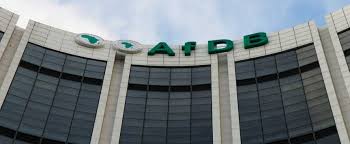The African Development Bank (AfDB) anticipates an acceleration of the continent’s growth, with projections of 4.1 percent in 2025 despite geopolitical tensions and climate disasters, APA has learned.
The African Development Bank has presented its “Africa’s Macroeconomic Performance and Outlook” report for 2025, forecasting stronger economic growth for the continent.
According to the report, nearly half of African countries are expected to record growth above five percent in 2025, and 12 of the 20 fastest-growing economies in the world will be African.
Published on the sidelines of the 38th Ordinary Session of the Assembly of the African Union in Addis Ababa, Ethiopia, the report estimates that Africa’s real GDP growth should accelerate to 4.1 percent in 2025 and reach 4.4 percent in 2026.
Twenty-four countries, including Djibouti, Niger, Rwanda, Senegal, and South Sudan, are expected to experience GDP growth rates above five percent in 2025.
This trend is attributed to economic reforms, declining inflation, and improved fiscal and debt situations in countries.
However, the report highlights that Africa’s growth remains below the seven percent threshold needed for significant poverty reduction.
The continent faces significant challenges, such as geopolitical tensions, structural weaknesses, climate disasters, and protracted conflicts in regions like the Sahel and the Horn of Africa.
In 2024, Africa’s real GDP growth is expected to be limited to 3.2 percent, slightly above the three percent recorded in 2023.
The document also reports the persistence of inflation, although the average rate for 2025-2026 is projected at 12.6 percent, down from 18.6 percent in 2024.
Budget deficits of African countries are expected to widen slightly, from 4.4 percent of GDP in 2023 to 4.6 percent in 2024, before narrowing to 4.1 percent by 2025-2026.
Public debt, while stabilised, remains high, with nine countries in debt distress and eleven at high risk of debt distress.
Ethiopian Finance Minister Ahmed Shide welcomed the depth of the report, highlighting “the fragility of Africa’s economic growth, which is expected to hover around four percent in the short term.”
He stressed the need for proactive policy measures to support growth and stability, stating that Ethiopia has implemented bold reforms to restore macroeconomic stability and enhance resilience.
AfDB Group vice president Nnenna Nwabufo stressed Africa’s potential to drive global growth, while calling for decisive and well-coordinated policies.
“Policymakers must adopt a forward-looking approach to build resilience and drive sustainable growth,” she said.
The report highlights the importance of integrated strategies to support Africa’s sustainable economic growth in an increasingly uncertain global environment.
It particularly highlights the importance of continental initiatives such as the African Continental Free Trade Area (AfCFTA) and the urgency of strengthening cooperation between states to improve infrastructure, particularly in logistics and manufacturing.
“I expect African businesses to create logistics hubs and warehouses across Africa. I also expect the African private sector to start planning the development of an African shipping line,” said Albert Muchanga, African Union Commissioner for Trade and Industry, calling on African entrepreneurs to play a more active role in supporting the AfCFTA.
ODL/te/lb/jn/APA


